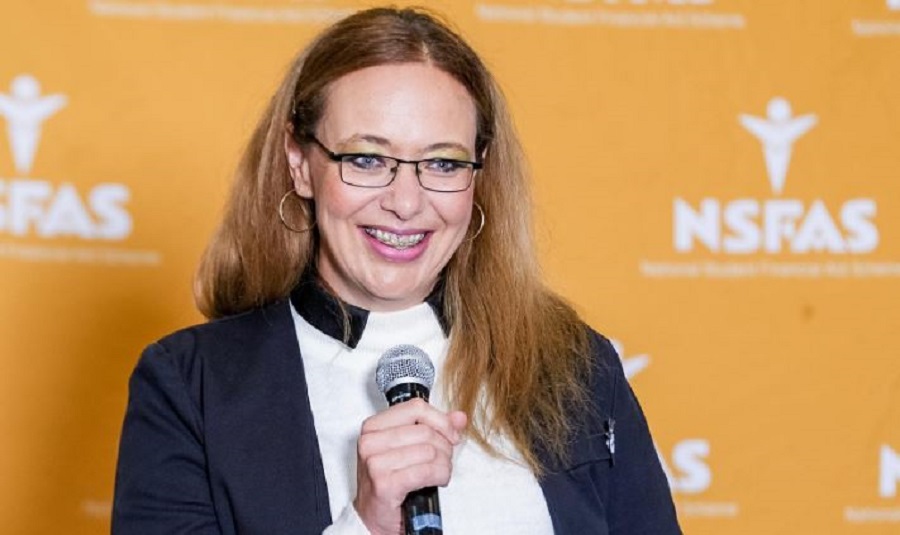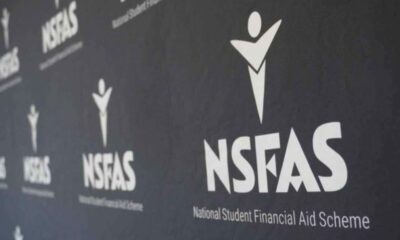News
Racism, Fear, and Fractured Trust: Inside the Leadership Crisis at Nsfas

Racism, Fear, and Fractured Trust: Inside the Leadership Crisis at Nsfas
The National Student Financial Aid Scheme (Nsfas), already battered by years of scandal and mismanagement, has been thrown into deeper turmoil following the abrupt resignation of its board chair, Karen Stander.
Her departure, reportedly triggered by threats, racism, and intimidation, has once again cast a harsh spotlight on one of South Africa’s most vital, yet troubled, institutions. Nsfas funds over a million students from low-income families each year, and when leadership cracks show, the ripple effects are felt across campuses nationwide.
A Chairperson Under Siege
In her resignation letter, Stander alleged that she faced personal threats, racial hostility, and a toxic environment that made her position untenable. While the details remain undisclosed, her words paint a disturbing picture of dysfunction within the institution’s top ranks.
“Her decision to step down didn’t happen in a vacuum,” said Wayne Duvenage, CEO of the Organisation Undoing Tax Abuse (OUTA). “Nsfas has long been plagued by governance and performance issues that trace back to contracts and decisions made by previous administrations.”
Duvenage suggested that the Higher Education Ministry, under Minister Buti Manamela, must act decisively if it hopes to restore confidence in the embattled student aid body.
“The minister has a chance to clean up higher education governance, but that requires courage,” he said.
A Board Divided
According to sources close to Nsfas, the board is deeply divided, with some members prioritising political loyalty over accountability. Those who supported Stander’s push for transparency and performance metrics have reportedly been marginalised or have left the board entirely.
“This makes her job almost impossible,” Duvenage explained. “Without full backing from the minister, CEO, and fellow board members, her role becomes untenable.”
He was also sharply critical of acting CEO Waseem Carrim, questioning his suitability for the post and alleging a lack of respect for the board chair. “His contract should be terminated,” Duvenage stated bluntly.
A Culture of Rot and Continuity
OUTA’s concerns extend beyond Nsfas. Duvenage warned of a wider culture of complacency and political recycling in the higher education sector, particularly in the Sector Education and Training Authorities (Setas).
“We keep seeing the same faces, the same old guard, being reappointed,” he said. “They’ve failed to hold executives accountable, which only entrenches maladministration.”
Calls for Accountability and Renewal
Across the political spectrum, calls are growing for transparency. The Democratic Alliance (DA) has asked Parliament’s portfolio committee on higher education to summon Minister Manamela to respond to Stander’s allegations.
“This is not just an internal HR issue,” said Delmaine Christians, DA spokesperson on education. “It’s about governance, integrity, and the future of millions of students who depend on Nsfas.”
Meanwhile, Dr Benjamin Rapanyane, a political science lecturer at North-West University, believes Stander’s exit may mark a turning point if handled correctly.
“When trust breaks down at an institutional level, sometimes leadership change is the only path to renewal,” he said. “But the real question is whether the system itself is willing to change, or whether it will simply replace one name with another.”
Public Reaction: Frustration and Fatigue
On social media, South Africans voiced both outrage and exhaustion.
“Every year it’s a new scandal,” one user wrote on X. “Students are still waiting for their allowances while executives fight for power.”
Another added, “If the person trying to clean up Nsfas is being intimidated, what chance does the system have?”
The sentiment reflects a broader disillusionment, a feeling that South Africa’s education institutions are stuck in a cycle of crisis and cover-up, with little real reform.
A System at a Crossroads
For Nsfas, the stakes couldn’t be higher. The agency’s credibility and its ability to deliver funding to students without corruption or chaos, hangs in the balance.
Karen Stander’s resignation is more than a personal decision. It’s a warning flare for the country’s higher education sector: unless accountability and integrity take root at every level, South Africa risks losing faith in one of its most important public institutions.
{Source: The Citizen}
Follow Joburg ETC on Facebook, Twitter , TikTok and Instagram
For more News in Johannesburg, visit joburgetc.com



























